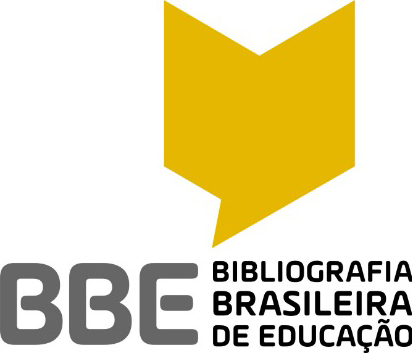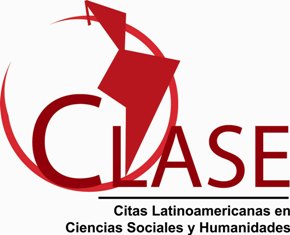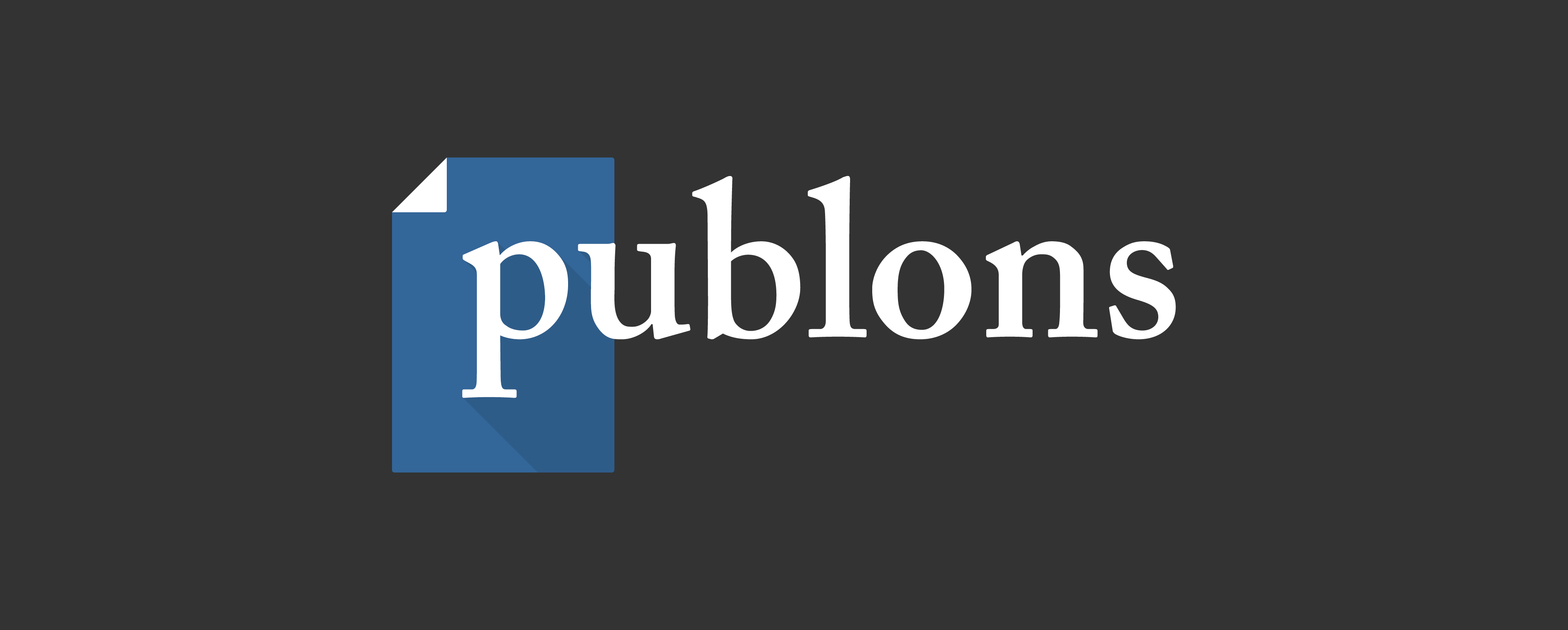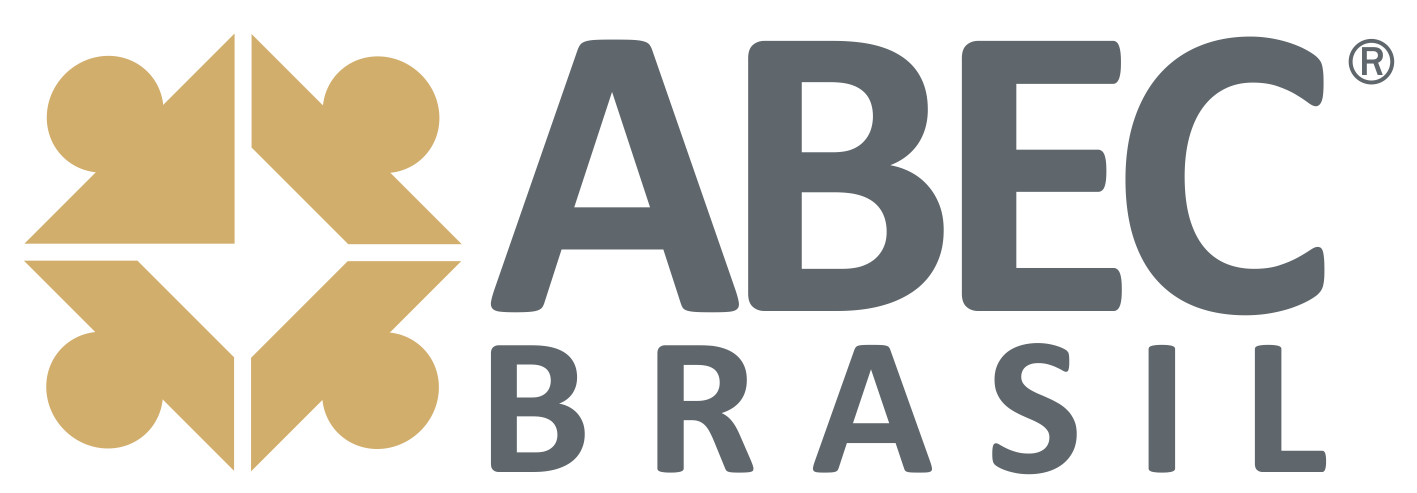Educação do futuro. Como seria uma “escola” futura?
DOI:
https://doi.org/10.22169/revint.v16i37.2056Resumo
Ensaio
Downloads
Referências
ALTHUSSER, L. 1971. La Revolución Teórica de Marx. Siglo XXI, México.
ALTHUSSER, L. 1980. Ideologia e Aparelhos ideológicos do Estado. Editorial Presença, Lisboa.
ANUÁRIO BRASILEIRO DA EDUCAÇÃO BÁSICA 2019. Todos pela Educação/Moderna. São Paulo - https://www.todospelaeducacao.org.br/_uploads/_posts/302.pdf
ARCHER, M.S. 2000. Homo economicus, homo sociologicus, homo sentiens. In M.S. Archer & J.Q. Tritter (Eds.). Rational choice theory: Resisting colonization. Routledge, p. 36-57.
ARIELY, D. 2010. A Taste of Irrationality: Sample chapters from Predictably Irrational and Upside of Irrationality. Harper Collins, New York.
ARIELY, D. 2012. The Honest Truth About Dishonesty: How We Lie to Everyone – Especially Ourselves. Amazon, N.Y.
BAKAN, J. 2011. Childhood Under Siege – How big business targets children. Free Press, N.Y.
BASE NACIONAL COMUM CURRICULAR (BNCC). 2018. Educação é a Base. MEC, Brasília - http://basenacionalcomum.mec.gov.br/images/BNCC_EI_EF_110518_versaofinal_site.pdf
BID - ELACQUA, G., HINCAPIÉ, D., VEGAS E., ALFONSO, M. 2018. Profissão Professor na América Latina – Por que a docência perdeu prestígio e como recuperá-lo? BID, N.Y. https://publications.iadb.org/handle/11319/8953
BOEHM, C. 1999. Hierarchy in the Forest - The evolution of egalitarian behavior. Harvard University Press, Massachusetts.
BOEHM, C. 2012. Moral Origins – The evolution of virtue, altruism, and shame. Basic Books, N.Y.
BOFF, L. 2002. Saber Cuidar. Vozes, Petrópolis.
BOFF, L. 2015. Toward an eco-spirituality. Amazon.
BOFF, L. 2017. Ética e espiritualidade: Como cuidar da casa comum. Amazon.
BOFF, L. 2019. The following of Jesus: A reply to the Imitation of Christ. Amazon.
BOURDIEU, P. & PASSERON, J.C. 1975. A Reprodução - Elementos para uma teoria do sistema educativo. Francisco Alves, Rio de Janeiro.
BOURDIEU, P. 2007. A Distinção - Crítica social do julgamento. Edusp, São Paulo.
BRENNAN, J. & MAGNESS, P. 2019. Cracks in the Ivory Tower: The moral mess of higher education. Oxford U. Press.
BROUSSARD, M. 2018. Artificial Unintelligence: How computers misunderstand the world. MIT Press, Cambridge.
BRUYCKERE, P., KIRSCHNER, P.A., HULSHOF, C.D. 2015. Urban myths about learning and education. Academic Press, London.
CAPLAN, B. 2018. The case against education: Why the education system is a waste of time and money. Princeton U. Press.
CARLSON, R.H. 2010. Biology Is Technology: The Promise, Peril, and New Business of Engineering Life. Harvard University Press. Massachusetts.
CHOPRA, D., PENROSE, R., CARTER, B. et alii. 2015. How consciousness became the universe: Quantum physics, cosmology, relativity, evolution, neuroscience, parallel Universes. Amazon, N.Y.
CHUN, W.H.K. 2016. Updating to remain the same: Habitual new media. MIT Press, Cambridge.
COULDRY, N. & HEPP, A. 2016. The mediated construction of reality. Polity, London.
DAMASIO, A. 2018. The strange order of things: Life, feeling, and the making of cultures. Pantheon, N.Y.
DAMASIO, A.R. 1996. O Erro de Descartes – Emoção, razão e o cérebro humano. Companhia das Letras, Rio de Janeiro.
DAUGHERTY, P.R. & WILSON, H.J. 2018. Human + Machine: Remaining work in the age of AI. Harvard Business Review Press, Cambridge.
DELORS, J. et alii. 1996. Educação – Um tesouro a descobrir. Unesco – http://dhnet.org.br/dados/relatorios/a_pdf/r_unesco_educ_tesouro_descobrir.pdf
DEMO, P. 1996. Educar pela pesquisa. Autores Associados, Campinas.
DEMO, P. 2001. Pesquisa e Informação Qualitativa. Papirus, Campinas.
DEMO, P. 2005. Autoajuda- Uma sociologia da ingenuidade como condição humana. Vozes, Petrópolis.
DEMO, P. 2007. Pobreza Política – A pobreza mais intensa da pobreza brasileira. Autores Associados, Campinas.
DEMO, P. 2013. Felicidade como renúncia – https://docs.google.com/document/d/1qVjphapB8hVIsxsWYNmktyRbG8kdCs0lASf6puTbesQ/pub
DEMO, P. 2015. Aprender como Autor. Gen, São Paulo.
DEMO, P. 2017. Educação emancipatória precisa de educação científica. SED/Gov. MA, Campo Grande – https://docs.google.com/document/d/e/2PACX-1vSwjZIox-8idUZ2HmpxG--oFZNOpomKyNLZGcKjZ_VQfyBy9y8ApLqYnsdi4z5Bnw/pub
DEMO, P. 2018. Educação estratégia de ranqueamento social – Retomando a sociologia da educação reprodutiva, hoje – https://drive.google.com/file/d/1Op9PyRzwClRFDPfp3ZK_W4PCBl9iRlh-/view
DEMO, P. 2018a. Atividades de aprendizagem – Sair da mania do ensino para comprometer-se com a aprendizagem do estudante. SED-Gov. MS, Campo Grande – https://drive.google.com/file/d/1FKskDCxNB422PVhrjrDjD48S4cjsb77-/view
DEMO, P. 2019. BNCC – Ranços e avanços – https://drive.google.com/file/d/1iNN-LQuf-9rJe6wFQoHl9kQzUKqjzDBj/view
DEMO, P. 2019a. Escola e Cuidado – https://drive.google.com/file/d/1XKQDqJHfNMFEnN2gVF1n6yZmEmoYkS34/view
DEMO, P. 2019b. Direitos Humanos Supremacistas à Brasileira – De como fabricar cidadanias privilegiadas – https://drive.google.com/file/d/1q9IkToL5jPHSSfEXbJa8DAy8n-KWORjM/view
DEMO, P. 2019c. Igualitarismo e suas polêmicas – https://docs.google.com/document/d/e/2PACX-1vS7LdEt-Xq_lxoEEwPbjXF5TM0fxJ3HwDAq4B_I8Ulg85m-jMNsZ7jMkfChHXBEI-Oko_6pBlADIHII/pub
DEMO, P. 2020. Por que “amo, logo existo” é quiçá mais importante que “penso, logo existo”? – https://drive.google.com/file/d/10Mu0yfsrEqacB848FnZU5hz6CigLa3cx/view
DEMO, P. 2020a. Por que precisamos de religião (ou religiosidade?) – https://drive.google.com/file/d/1GFD2k37le5yDwv1DMLB3ACaKmQjtUMAp/view
DEMO, P. 2020b. Por que tristeza não tem fim, felicidade sim? – https://drive.google.com/file/d/1ad-U9Jw8yPf48sQrTU8HHTUm3k2dWAn_/view
DEMO, P. 2020c. Educação à deriva – À direita e à esquerda: instrucionismo como patrimônio nacional – https://drive.google.com/file/d/10nMlgL8N9GKFgwtnbL-bIn7GQf0HdyA4/view
DINTERSMITH, T. 2018. What school could be: Insights and inspiration from teachers across America. Princeton U. Press, Princeton.
DOLTON, P., MARCENARO, O., VRIES, R., SHE, P-W. 2018. Global Teacher Status – Index 2018. U. of Sussex & Varkey Foundation - https://www.varkeyfoundation.org/media/4867/gts-index-13-11-2018.pdf
DOUDNA, J.A. & STERNBERG, S.H. 2017. A Crack in Creation: Gene editing and the unthinkable power to control evolution. Houghton Mifflin Harcourt, N.Y.
EBELING, R. 2019. For a New Liberalism. AIER – American Institute For Economic Research. Amazon, N.Y.
FOERSTER, H. & POERKSEN, B. 2008. Wahrheit ist die Erfindung eines Lügners: Gespräche für Skeptiker. Carl-Auer-Systeme. Berlin.
FREIRE, P. 1989. A Importância do ato de ler. Cortez, São Paulo - http://educacaointegral.org.br/wp-content/uploads/2014/10/importancia_ato_ler.pdf
FREIRE, P. 1997. Pedagogia da Autonomia – Saberes necessários à prática educativa. Paz e Terra, Rio de Janeiro.
FREIRE, P. 2006. Pedagogia do Oprimido. Paz e Terra, Rio de Janeiro.
GELERNTER, D. 2016. The tides of mind: Uncovering the spectrum of consciousness. Liveright, N.Y.
GERRISH, S. & SCOTT, K. 2018. How smart machines think. The MIT Press.
GIAMMEI, B. & POLLO, L. 2019. Por que nossos professores estão adoecendo? R7 estúdio – https://estudio.r7.com/por-que-nossos-professores-estao-adoecendo-15102019
GOBER, M. 2018. An end to upside down thinking: Dispelling the myth that the brain produces consciousness, and the implications for everyday life. Waterside Press, N.Y.
GOLEMAN, D. 2006. Social Intelligence. Bantam Books, New York.
GOLEMAN, D. 2011. Working with emotional intelligence. Bantam, N.Y.
GOODFELLOW, I. & BENGIO, Y. 2016. Deep Learning. MIT Press, Cambridge.
GRAHAM, C. 2009. Happiness around the world: The paradox of happy peasants and miserable millionaires. OUP Oxford, Oxford.
GRANICK, J.S. 2017. American Spies: Modern surveillance, why you should care, and what to do about it. Amazon Digital Services, N.Y.
HAIDT, J. 2012. The Righteous Mind: Why good people are divided by politics and religion. Pantheon, N.Y.
HARARI, Y.N. 2015. Sapiens: A brief history of humankind. Harper, London.
HARARI, Y.N. 2017. Homo Deus – A brief history of tomorrow. Harper, London.
HARARI, Y.N. 2018. 21 Lessons for the 21st century. Spiegel and Grau, N.Y.
HARAWAY, D. 2016. Staying with the trouble: Making Kin in the Chthulucene. Duke U. Press Books, Durham.
HARLOW, H. F. 1958. The nature of love. American Psychologist 13(12):673-685.
HARLOW, H.F., DODSWORTH, R.O., HARLOW, M.K. 1965. Total social isolation in monkeys. Proceedings of National academy Science USA 54(1):90-97.
HARRIS, S. 2014. Waking up: A guide to spirituality without religion. Amazon, N.Y.
HAWKING, S.W. 2006. The Theory of Everything: The origin and fate of the universe. Phoenix Books, Beverly Hills.
HERCULANO-HOUZEL, S. 2016. The human Advantage: A new understanding of how our brain became remarkable. The MIT Press, Cambridge.
HOFFMAN, D. 2019. The case against reality: Why evolution hid the truth from our eyes. Norton, N.Y.
ILLICH, I. 1979. Sociedade sem escolas. Vozes, Petrópolis.
IOSCHPE, G. 2004. A Ignorância Custa um Mundo - O valor da educação no desenvolvimento do Brasil. Francis, São Paulo.
JORDAN, J.M. 2016. Robots. The MIT Press, Cambridge.
KAKU, M. 2018. The future of humanity: Terraforming Mars, interstelar travel, immortality, and our destiny beyond Earth. Doubleday, N.Y.
KAUFFMAN. S.A. 2019. A world beyond physics: The emergence and evolution of life. Oxford U. Press.
KELLEHER, J.D. & TIERNEY, B. 2018. Data Science. The MIT Press, Cambridge.
KELLMEREIT, D. & OBODOVSKI, D. 2017. The silent intelligence – The internet of things. DND Ventures LLC, Amazon.
KELLY, K. 2016. The Inevitable: Understanding the 12 technological forces that will shape our future. Viking, London.
KOCH, C. 2019. The feeling of life itself – Why consciousness is widespread but can’t be computed. MIT Press.
KURZBAN, R. 2010. Why Everyone (Else) is a hypocrite: Evolution and the modular mind. Princeton University Press, Princeton.
LASZLO, E. (with Alexander Laszlo, Deepak Chopra, and S. Grof). 2016. What is reality? The new map of cosmos, consciousness, and existence. SelectBooks, N.Y.
LATOUR, B. 2005. Reassembling the Social – An introduction to actor-network theory. Oxford University Press, Oxford.
LATOUR, B. 2013. An Inquiry into Modes of Existence – An anthropology of the moderns. Harvard University Press, Cambridge.
LATOUR, B. 2018. Down to earth: Politics in the new climatic regime. Polity.
LEE, K-F. 2018. AI Superpowers: China, Silicon Valley, and the new world order. Houghton Mifflin Harcourt, N.Y.
LENTS, N. 2018. Human Errors: A panorama of our glitches, from pointless bones to broken genes. Weidenfeld & Nicolson, N.Y.
LEONHARD, G. 2016. Technology vs Humanity: The coming clash between man and machine. Fast Future Publishing, N.Y.
LINN, M.C. & EYLON. B.-S. 2011. Science Learning and Instruction – Taking advantage of technology to promote knowledge integration. Routledge, N.Y.
LIPSON, H. & KURMAN, M. 2016. Driverless: Intelligent cars and the road ahead. The MIT Press, Cambridge.
MARKOFF, J. 2015. Machines of loving grace: The quest for common grounds between humans and robots. Ecco, N.Y.
MARZANO, R. 2007. The Art and Science of Teaching: A Comprehensive Framework for Effective Instruction. Association for Supervision & Curriculum Development, Washington.
MARZANO, R.J. & PICKERING, D.J. 2011. The Highly Engaged Classroom. Marzano Search Laboratory, Bloomington.
MARZANO, R.J. 2003. What Works in Schools – Translating research into action. ASCD, Alexandria.
MEZIROW, J. & ASSOCIATES. 2000. Learning as Transformation – Critical perspectives on a theory in progress. Jossey-Bass, San Francisco.
MILANOVIC, B. 2019. Capitalism, alone – The future of the system that rules the world. Harvard U. Press.
NORTON, B. 2016. Intrinsic Motivation: How to motivate yourself from within and achieve your goals with blazing speed. Amazon, N.Y.
NOWAK, M. (with Highfield, R.) 2011. SuperCooperators: Altruism, evolution, and why we need each other to succeed. Free Press, N.Y.
OECD. 2019. PISA 2018 Assessment and Analytical Framework. PISA, OECD Publishing, Paris – https://doi.org/10.1787/b25efab8-en
PANEK, R. 2011. The 4 percent universe: Dark matter, dark energy, and the race to discover the rest of reality. Mariner Books, Wilmington.
PAPERT, S. 1994. A máquina das crianças - Repensando a escola na era da informática. Artes Médicas, Porto Alegre.
PIKETTY, T. 2020. Capital and Ideology. Harvard U. Press.
PINK, D.H. 2009. Drive – The surprising truth about what motivates us. Riverhead Books, New York.
POPKEWITZ, T.S. 2001. Lutando em Defesa da Alma – A política do ensino e a construção do professor. ARTMED, Porto Alegre.
POPPER, K.R. 1959. The Logic of Scientific Discovery. Hutchinson of London, London.
REESE, B. 2018. The fourth age: Smart robots, conscious computers, and the future of humanity. Atria Books, N.Y.
RINDERMANN, H. 2018. Cognitive Capitalism – Human Capital and the wellbeing of nations. Cambridge U. Press.
RIPLEY, A. 2013. The Smartest Kids in the World: And How They Got That Way. Simon & Schuster, N.Y.
ROSEN, L. 2012. iDisorder: Understanding Our Obsession with Technology and Overcoming Its Hold on Us. Palgrave Macmillan, N.Y.
RUSSELL, S. 2019. Human Compatible – Artificial intelligence and the problem of control. Viking, N.Y.
SCHARRE, P. 2018. Army of None: Autonomous weapons and the future of war. Norton & Company, N.Y.
SCHLEICHER, A. 2019. PISA 2018 – Insights and Interpretations. OECD. OECD Publishing, Paris – https://www.oecd.org/pisa/PISA%202018%20Insights%20and%20Interpretations%20FINAL%20PDF.pdf
SCHNEIDER, S. 2019. Artificial You: AI and the future of your mind. Princeton U. Press.
SCHWAB, K. 2018. Shaping the Fourth Industrial Revolution. World Economic Forum.
SCOBLE, R. & ISRAEL, S. 2017. The fourth Transformation: How augmented reality & Artificial Intelligence will change everything. Patrick Brewster Press, East Haven.
SELIGMAN, M.E.P. 2002. Authentic Happiness - Using the new positive psychology to realize your potential for lasting fulfillment. Free Press, New York.
SELIGMAN, M.E.P. 2011. Flourish: A New Understanding of Happiness, Well-Being - and How to Achieve Them. Atria Books, N.Y.
SLOTTA, J.D. & LINN, M.C. 2009. Wise Science – Web-based inquiry in the classroom. Teachers College Press, N.Y.
TAYLOR, E.W., CRANTON, P. & Associates. 2012. The Handbook of Transformative Learning – Theory, research, and practice. Jossey-Bass, San Francisco.
TEGMARK, M. 2017. Life 3.0: Being human in the age of artificial intelligence. Knopf. N.Y.
THALER, R.H. 2015. Misbehaving: The making of behavioral Economics. Penguin, N.Y.
THE EDITORS OF TIME. 2017. TIME Artificial Intelligence: The future of humankind. TIME-LIFE.
THEOBALD, O., 2017. Machine learning for absolute beginners. Amazon Digital Services, N.Y.
TIBA, Içami. 2007. Disciplina - Limite na medida certa. Integrare Editora, São Paulo.
TIBA, Içami. 2007a. Quem Ama, Educa! Integrare Editora, São Paulo.
TWENGE, J.M. 2017. iGen: Why today’s super-connected kids are growing up less rebellious, more tolerant, less happy – and completely unprepared for adulthood – and what that means for the rest of us. Atria Books, Amazon.
UNGER, R.M. & SMOLIN, L 2014. The singular universe and the reality of time: A proposal in natural philosophy. Cambridge U. Press, Cambridge.
WOHLFORTH, C. & HENDRIX, A.R. 2016. Beyond Earth: Our path to a new home in the planets. Pantheon, N.Y.
WORLD BANK (WB). 2018. Poverty and shared prosperity 2018 – Piecing together the poverty puzzle. Washington. - https://openknowledge.worldbank.org/bitstream/handle/10986/30418/9781464813306.pdf
WORLD BANK (WB). 2019. The Changing Nature of Work. The World Bank, Washington - http://documents.worldbank.org/curated/en/816281518818814423/pdf/2019-WDR-Report.pdf
WORLD INEQUALITY REPORT 2018. 2019. Chancel, L. et alii (Coords.). World Inequality Lab. Paris School of Economics – https://wir2018.wid.world/files/download/wir2018-full-report-english.pdf
WU, T. 2016. The attention merchants: The epic scramble to get inside our heads. Knopf, London.
ZHAO, Y. 2014. Who is afraid of the big bad dragon: Why China has the best (and the worst) education system in the world. Jossey-Bass, San Francisco.
ZHAO, Y. 2018. What works may hurt – Side effects in education. Teachers College Press.
ZHAO, Y. 2018a. Reach for greatness: Personalizable education for all children. Corwin, Thousand Oaks.
ZHAO, Y. 2019. An education crisis is a terrible thing to waste – How radical changes can spark student excitement and success. Teachers College Press.
Downloads
Publicado
Versões
- 2024-04-05 (2)
- 2021-04-28 (1)
Como Citar
Edição
Seção
Licença
Os direitos autorais dos artigos publicados na Revista são de acordo com a licença CC-BY-ND - Creative Commons ( https://creativecommons.org/licenses/by-nd/4.0/legalcode)
Esta licença permite que outras pessoas reutilizem o trabalho para qualquer finalidade, inclusive comercialmente; no entanto, não pode ser compartilhado com outras pessoas de forma adaptada e o crédito deve ser fornecido ao autor.
Os direitos autorais dos artigos publicados na Revista são do autor, com os direitos de primeira publicação para a Revista





























